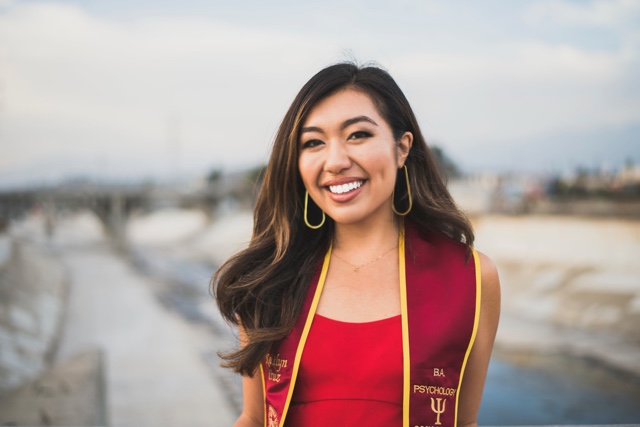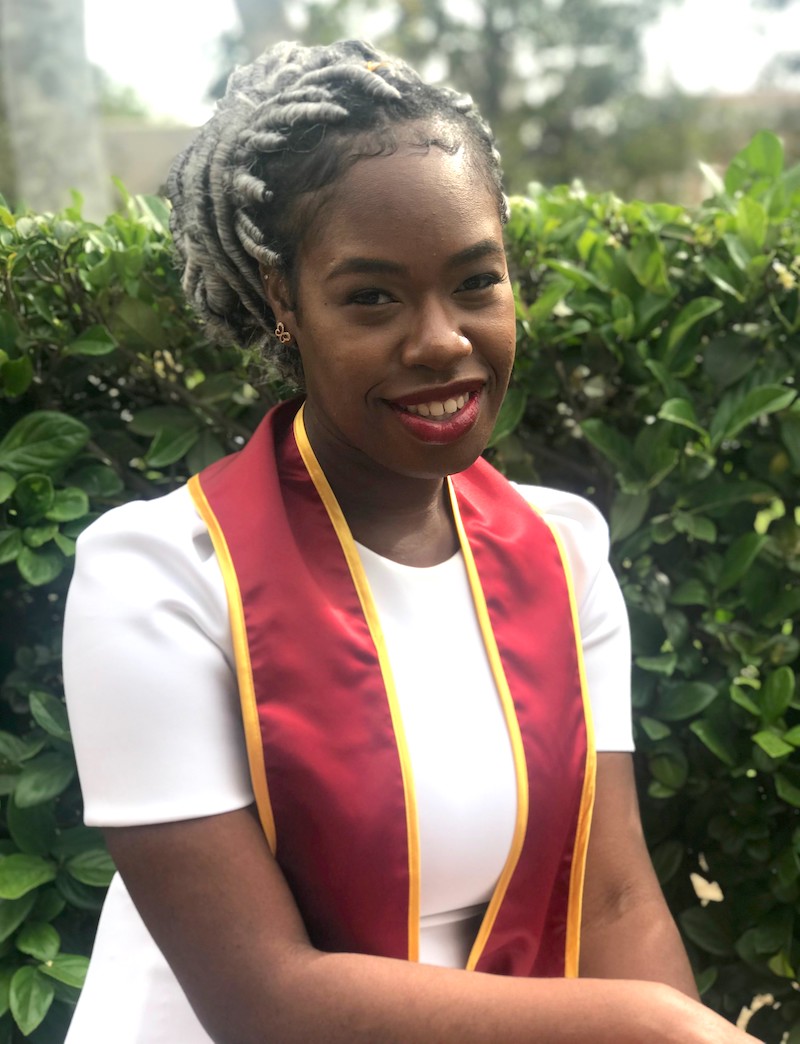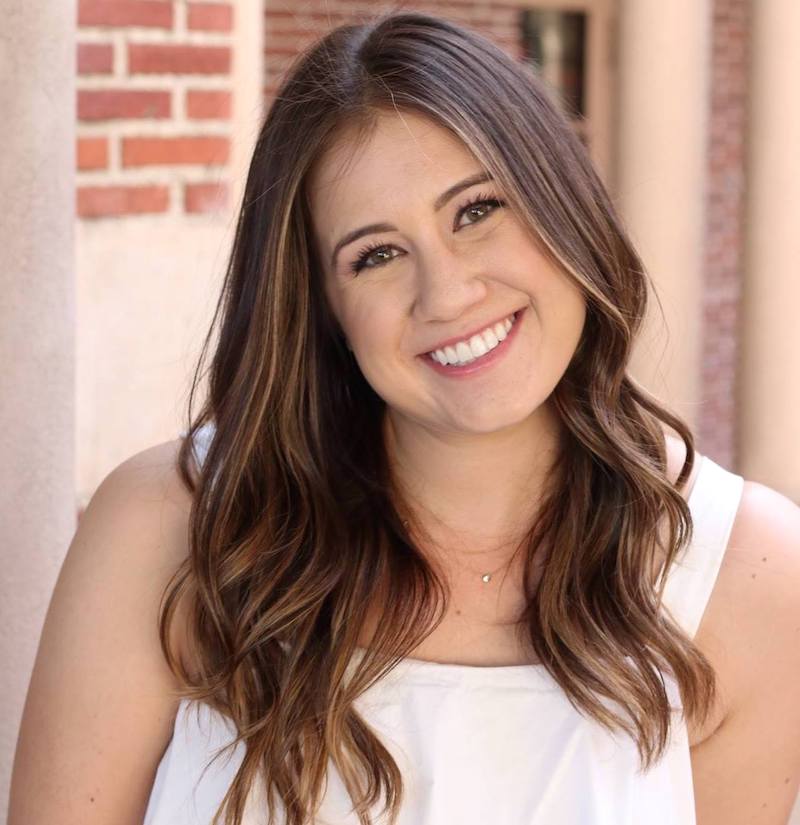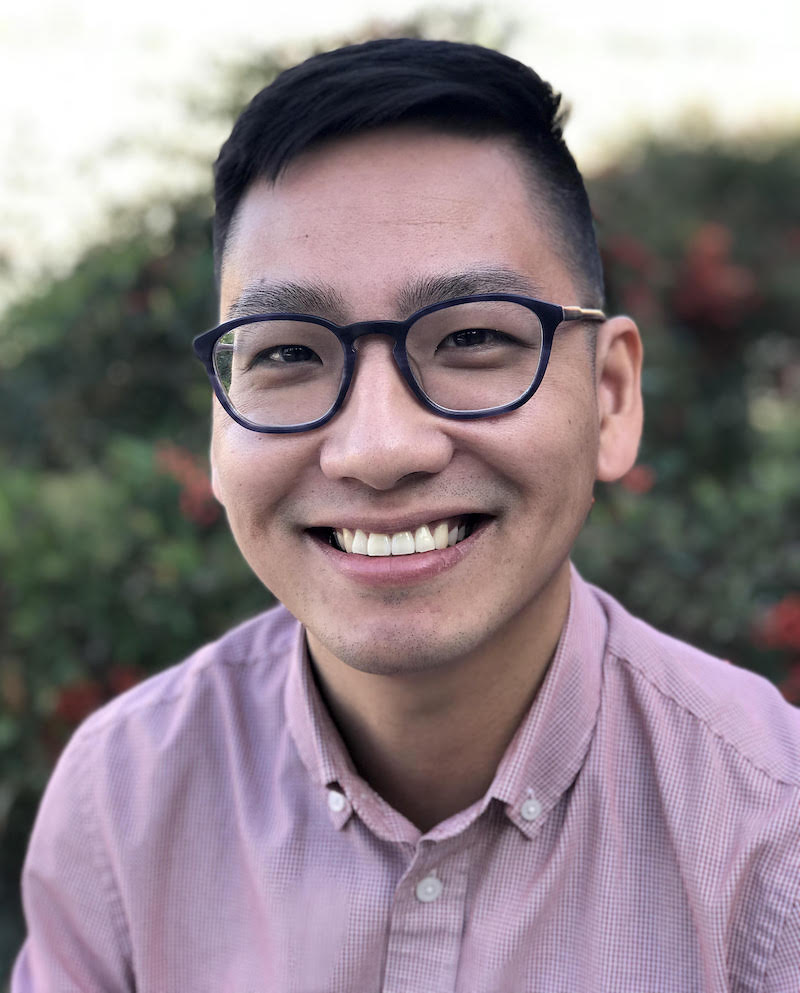The Doctor(ate) is in
February 21, 2019
As many of our Accelerated Master's to OTD students begin to plan for the doctoral program next year, four current OTD students — Kaitlyn Cruz, Laryssa Green, Keilani Phillips, and Phillip Lee — discuss their experiences with our Student Ambassador Etta.
Academics and Courses Clinical Students
Why did you decide to pursue your OTD?
Kaitlyn: I decided to pursue my OTD for many reasons: to advance the profession of occupational therapy, to lay down a foundation to be a leader in the field, to progress towards my future goals and to overall prepare me as the best clinician I can possibly be. However, the biggest reason I chose to do my OTD was because I was offered an invaluable residency that not only allows me to work alongside an amazing team, but also with the strongest, most inspiring patients who push me to be a better OT and person every single day. My day-to-day is extremely rewarding and humbling, and for that I am so grateful for everyone at City of Hope and the opportunity to do my residency there.

Kaitlyn Cruz
Laryssa: I decided to pursue my OTD for many reasons. It has always been a part of my career aspirations to teach at the university level in occupational therapy. I believe that the doctoral year is one that can truly immerse you in your own vision for your future career. You have the opportunity to deep-dive into that which you are passionate about, and integrate that passion with the love of OT. The result is a degree that shows your expertise in this field and realm that you have created for yourself. That alone is incredible. Additionally, the OTD gives you a leg up because the coursework serves to develop you as a leader.

Laryssa Green
Keilani: I decided to pursue my OTD to continue my education in occupational therapy and to partake in the additional year of mentorship that the OTD offers. Additionally, the profession appears to be moving in the direction of a doctorate and I wanted to be prepared for this change.

Keilani Phillips
Phillip: I decided to pursue my OTD because I wanted continual mentorship from Dr. Pitts and wanted to develop my clinical skills as a mental health OT practitioner. Additionally, I felt it was necessary to work towards the OTD in preparation for a future in teaching occupational therapy. Finally, I believe that having more OTDs can only strengthen our profession. In an ever competitive world, this is just another way to demonstrate to other professions that what we do is quite valuable.

Phillip Lee
Where is your OTD residency?
Kaitlyn: City of Hope, specializing in oncology. I work in inpatient acute with patients diagnosed with various types of cancer.
Laryssa: Integrative Wellness Therapy.
Keilani: LAC+ USC Medical Center’s High Risk Premature Infant Follow-up Clinic.
Phillip: Skid Row Housing Trust (SRHT), a non-profit organization dedicated to providing permanent supportive housing for those who have experienced homelessness, prolonged bouts of extreme poverty, poor physical and mental health, and/or struggling with addiction.
How many hours per week are you there/what is your schedule like?
Kaitlyn: I work a full-time work week (about 40 hours per week) in conjunction with attending classes required of the OTD program.
Laryssa: I travel to the site, practice within home health and work on associated projects for an average of 20 hours per week.
Keilani: 20 hours. I am there on Tuesdays and Fridays from 8 to 4 and Wednesdays from 8 to 12.
Phillip: I work 40 hours a week but every day is different! On some days, I assist residents at the New Genesis. On other days, I visit different buildings and work with the Resident Service Coordinators. Twice a week, I supervise Level I Fieldwork students, and approximately once a month I attend an additional training. I appreciate the flexible workload and the opportunity to try new things.
In addition to any potential scholarship support, what are other strategies used to finance the cost of the OTD?
Kaitlyn: I am paid a per diem rate since I am hired on as an occupational therapist at City of Hope.
Laryssa: Loans and a student worker position at USC Chan.
Keilani: My residency site is unpaid so I am taking out student loans. I also work part time as an OT at a pediatric clinic for additional financial support.
Phillip: I receive an hourly rate for my time at SRHT, yet I have to pull out loans each semester to cover the rest of my tuition. The hourly wages and careful budgeting helps with my monthly expenses.
Any tips for current master’s students applying for the OTD for next year?
Kaitlyn: Pursue what you’re passionate about and, to some extent, let the cards fall where they may. I know it seems like a stressful time right now (trust me, we’ve all been there), but more often than not, things will work out the way that they are meant to. There is no “right or wrong” when it comes to being an OT, and there is no set path you have to take to become a great one.
If you’re specifically interested in oncology, I suggest reaching out to different pertinent resources, seeking out information on your own and, overall, initiating the learning process, as it is still an emerging area of OT. Most importantly, pursue oncology if you’re truly passionate about the population, as this is a realm of OT that we very much pour our hearts into.
Laryssa: My advice is to have an idea of what you hope to gain from pursuing an OTD. Have a clear vision of where you would like to take the new-found information that you will be immersing yourself in. It is fine if that vision changes and your ideas are still evolving, but I believe that it is also important to have an initial plan from which you can guide your next steps and serve as motivation. I would advise you not to listen to the peer pressure of your classmates. If you feel that this degree is for you and will make a difference in your life, pursue it! Listen to your intuition and live out the visions that you have created for yourself! Good luck!
Keilani: Make sure you research all your options and feel prepared to take on an extra year of school. Though it is manageable and worth it, it is important to consider what is going to feel best for you after completing the master’s program and taking the board exam.
Phillip: If you are considering applying for the OTD, I would deeply think about why you want to do it. Are you doing this because other people are doing it? What do you expect to gain from this third year? Does the setting in which you are interested in working in require you to have an OTD? Do you want to start working immediately? If it makes sense for you to do it, then go for it. If not, then that’s okay too!
⋯
Next by tag Academics and Courses ⟩ Clinical ⟩ Students ⟩





